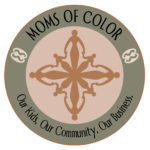
Listen up, my friend. We need to have a real talk about reaching your full potential and the mental obstacles that are holding you back from your goals and securing generational wealth for your children. I’m here to give you some tough love because I believe in you. It’s time to address that self-doubt and self-criticism that’s been sabotaging your path to financial success. Let’s dive deep, confront those mental barriers head-on, and unleash your true potential.
- Owning Your Inner Critic: Facing Self-Doubt and Negative Talk Stop letting that inner critic run the show, my friend. It’s time to acknowledge those self-doubts and negative thoughts that hold you back. You are capable, talented, and deserving of financial success. Challenge those negative beliefs and replace them with affirmations that remind you of your worth and potential.
- Embracing Growth: Pushing Past Comfort Zones It’s easy to stay within our comfort zones, but growth happens when we push beyond them. Don’t let fear hold you back from taking risks and seizing opportunities. Embrace discomfort, embrace failure as a stepping stone to success, and step into new territory. It’s through these challenges that you’ll discover your true potential.
- Overcoming Analysis Paralysis: Taking Action in the Face of Uncertainty Enough with the overthinking, my friend. Analysis paralysis will only keep you stuck. It’s time to make decisions, even in the face of uncertainty. Trust your instincts, gather the necessary information, and take that leap of faith. Remember, progress is born from action, not endless contemplation.
- Embracing Failure as a Learning Opportunity: Resilience in the Face of Setbacks Failure is not the end—it’s a chance to learn, grow, and come back even stronger. Don’t let a setback define you or dampen your spirits. Embrace failure as a valuable learning experience, adjust your approach, and keep moving forward. It’s through resilience that you’ll overcome those mental obstacles and achieve greatness.
- Seeking Support and Constructive Feedback: Surrounding Yourself with Allies You don’t have to do this alone, my friend. Seek support from those who believe in you, whether it’s friends, mentors, or coaches. Surround yourself with allies who will provide constructive feedback and challenge you to reach new heights. Embrace their guidance and use it to fuel your growth.
- Celebrating Your Wins: Acknowledging Your Progress and Successes Stop dismissing your accomplishments, my friend. Celebrate your wins, no matter how small they may seem. Recognize your progress, acknowledge your hard work, and give yourself the credit you deserve. Celebrating your successes boosts your confidence, fuels your motivation, and keeps you on the path to greater achievements.
Conclusion: Now, my friend, it’s time to take control of your destiny and confront those mental obstacles that have been holding you back. Silence that inner critic, step out of your comfort zone, and take action. Embrace failure as a learning opportunity, seek support from allies, and celebrate your wins along the way. You have untapped potential within you, waiting to be unleashed. Believe in yourself, embrace the journey, and let your determination and resilience guide you to the financial success you’ve always desired. It’s time to rise above self-doubt and claim what’s rightfully yours. Now go out there and show the world what you’re made of!
With Love, Lakischa Smith
Meet Lakischa Smith, a proud mother and a dedicated public health advocate. With a Bachelor’s from Dillard University and a Master’s in Public Health from Florida International University, she’s committed to sharing honest narratives about black motherhood. Lakischa believes in fostering sisterhood to combat the pervasive forces of white supremacy, and empowering African American women to be agents of change for future generations. She asserts that recognizing and addressing our community’s struggles is crucial, for healing is the key to moving forward. Armed with the power of education and a deep belief in collective action, Lakischa is determined to ensure that the issues impacting African American maternal health aren’t just seen—they’re addressed and resolved.





